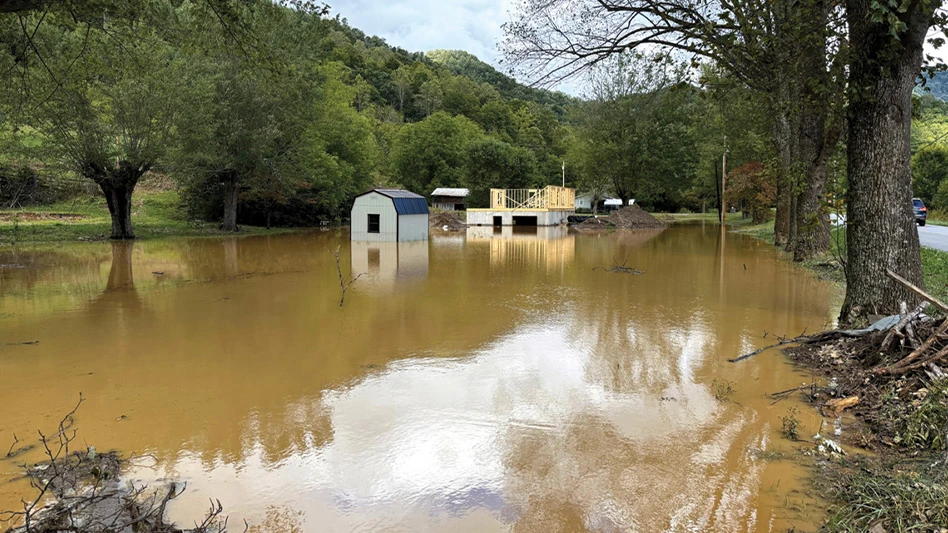
Adobe Stock
Have you ever heard the term “busman’s holiday?” It comes from Britain, and it means spending your vacation doing the same thing you do when you work. You drive a bus in New York, then go to London and spend the whole time riding the bus. Or you own a grocery store in Dallas and walk the food aisles in Rome. Get the idea?
Golf course superintendents should be very careful about taking a busman’s holiday. What do I mean? That even if you love playing golf or seeing other golf courses in your time off, it’s going to be very hard for you to play another course and not notice the conditioning, the rough and smooth spots, another superintendent’s successes and failures. It’s unavoidable.
Unless the other superintendent has specifically asked for your opinions on his/her course, you should –and I can’t emphasize this strongly enough – say nothing.
Where’s this coming from? I’ve heard about other superintendents “visiting” other courses for less than innocent reasons. The worst examples I know are when a “well-meaning” member takes it upon themselves to “invite” another superintendent to come over, play the course, and offer advice for making the course “better,” or “more challenging.”
So, this column is directed at two different groups of superintendents: those who visit, and those whose courses are visited.
The visitor
Never, never, never visit someone else’s golf course without letting that superintendent know you’re coming.
Even if it’s a 100 percent casual round with a friend, reach out and let them know you’ll be there. Maybe ask if you can come by and say hi, and if you have the time and interest, take a look at their operation. You might learn something; you might make a friend or do a little networking. All good.
If you’re visiting another golf course with an ulterior motive, such as a member wants to hear your opinion on the conditioning, architecture and operation or you think you can do a better job, look yourself in the mirror first and ask how you’d feel if someone were doing this to you.
Our business is tough enough without stabbing one another in the back. Sadly, there are those who seem to enjoy doing exactly that.
If you are sincere about our industry being a brother/sisterhood, contact the other superintendent in advance and be honest. Chances are they already know that the member in question is out to get them or might know their job is in trouble. If not, maybe you’re doing them a favor by letting them know. They might be flattered that you want to learn from them.
If the member swears it’s just a social round, be careful. Still let the other superintendent know you’re coming. I’ve found there’s usually a hidden agenda and the member wants your assessment of their course. Do yourself a favor and don’t offer any opinions (certainly not any negative ones) and do not put any “observations” in writing.
Instead, try to educate the member. Ask if they know their superintendent’s budget? The labor sources and staffing levels? Resources and access to key vendors? Is there an HOA involved or consideration of property values before executing various cultural practices? Restrictions imposed on the club by local ordinance, permitting or environmental agencies? Are there geographic or climatic considerations? What’s the irrigation situation and water sourcing?
You should defend a fellow superintendent, not help bring them down. It isn’t fair, it isn’t nice, it isn’t productive. Again, how would you feel if it happened to you?
The visited
How do you react if another superintendent calls to say they’re coming to play your course?
Start by taking the high road. Welcome them, invite them over to your office to say hello, even ask for their opinion on the conditioning. Find out who the invited member is (knowing this should tell you a lot). Unless you have reason to worry, assume this truly is a social visit.
Then do your homework. Check out the other superintendent (if you don’t know them), make some calls, comb your network. Is this person known for undercutting others? Are they known for trying to climb the job ladder or wanting to give one of their assistants a leg up? And learn about where they work and how that facility compares with yours.
Depending on what you learn, here are your next steps:
Assess the situation: Why is this happening, why is it happening to you, why is the member going around you?
Talk to your immediate supervisor: Properly and professionally vent your feelings. Do not approach the member directly.
Get support from key people at your club. The green chair, golf chair, club president, general manager can be good sounding boards.
Look at the situation objectively. Maybe you should be worried about your job? Would you be surprised to learn that? Also try to find out what the club powers think of the inviting member. Are they really acting on their own or with the knowledge of—maybe at the behest of—others? Is it possible the other superintendent is being paid to visit?
Speak up. If you’re uncomfortable with the visit, let the right people know.
No matter what you learn, here are a few things NOT to do:
Don’t dwell on it. After the initial shock and anger, let it go. Negative energy spreads through your crew, your family, and to other members.
Don’t overreact. Breathe and remain calm, especially around the club. Any outburst will only hurt you.
Don’t show your cards. Handle yourself like a professional, as our industry advocates.
Don’t hold a grudge. If it works out in your favor, find another way to let off steam. If it doesn’t work out, learn from the experience. The last thing you want is to get a bad reputation.
What about consultants? I can only speak for myself. When I’m asked to visit a course by anyone other than the superintendent, I don’t set foot on the property until I know they have been informed and/or I speak to them myself.
But I also do it because it’s the right thing to do.
Latest from Golf Course Industry
- Get your workplace recognized
- Troon acquires The Club at Cordillera
- Attention equipment managers!
- Cape Kidnappers looks at 20
- FairWays Foundation grants $25k to Monarchs In the Rough
- Beyond the Page 62: A fond farewell
- Florida’s Vineyards Country Club celebrates North Course reopening
- Florida's Soleta Golf Club open for play





